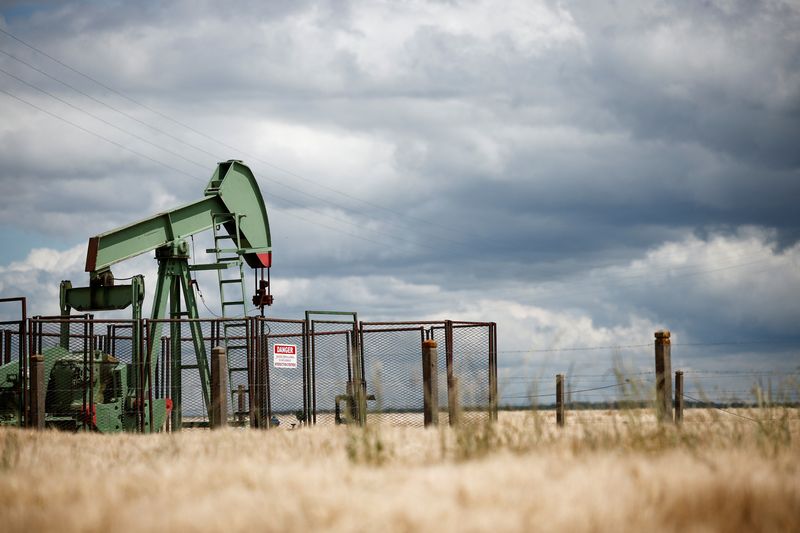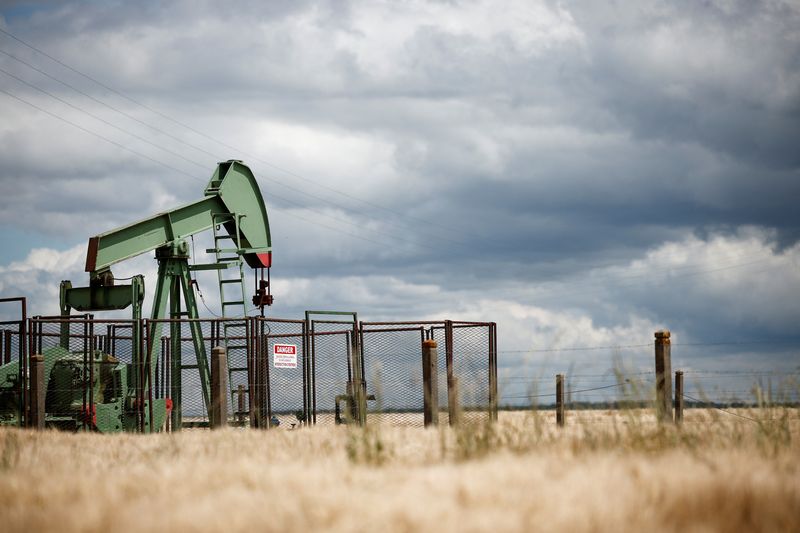
(Fixes formatting of link in final paragraph )
By Alex Lawler, Arunima Kumar
LONDON (Reuters) -Oil held its ground on Monday as downward pressure from concern about demand in top importer China offset support from strong demand elsewhere, OPEC+ supply restraint and geopolitical tensions in the Middle East.
The reaction of the wider markets to the attempted assassination of former U.S. President Donald Trump was in focus. The U.S. dollar steadied after gains earlier in the session that had weighed on oil.
Brent crude futures were up 3 cents at $85.06 a barrel by 1326 GMT. U.S. West Texas Intermediate crude gained 7 cents to $82.28.
“Chinese data including refinery runs and crude imports are not supportive,” said UBS analyst Giovanni Staunovo. “But demand growth elsewhere is still healthy.”
Crude fell last week after four weeks of gains as hopes of strong U.S. summer demand were countered by concern over demand in China.
Chinese data on Monday added to that concern. The world’s second-largest economy grew by 4.7% in the April to June quarter, official figures showed, the slowest growth since the first quarter of 2023.
On Friday separate figures showed China’s crude oil imports fell 2.3% in the first half of this year.
However, the volatile situation in the Middle East continues to provide a geopolitical premium for oil, though ample spare capacity held by Saudi Arabia and other members of OPEC has limited price support, analysts say.
“Geopolitical tensions in the Middle East, including volatile Israel-Hamas clashes and stalled peace talks, could remain a driving factor for oil prices due to concerns over regional stability,” said George Pavel, general manager at Capex.com Middle East.
The oil market is also broadly underpinned by supply cuts from the OPEC+ group of producers. Iraq’s oil ministry said at the weekend that it will compensate for overproduction since the beginning of 2024.
Market sentiment was supported by a U.S inflation report for June that came in below expectations, raising hopes for an interest rate reduction, though challenges persisted as China’s crude imports in June declined, highlighting ongoing market difficulties, Pavel added.

Federal Reserve Chair Jerome Powell is due to speak later in the day, and is likely to be asked for his reaction to last week’s subdued inflation reading.
Markets are pricing in a 96% chance the Fed will cut rates in September, up from 72% a week earlier.
This post is originally published on INVESTING.


